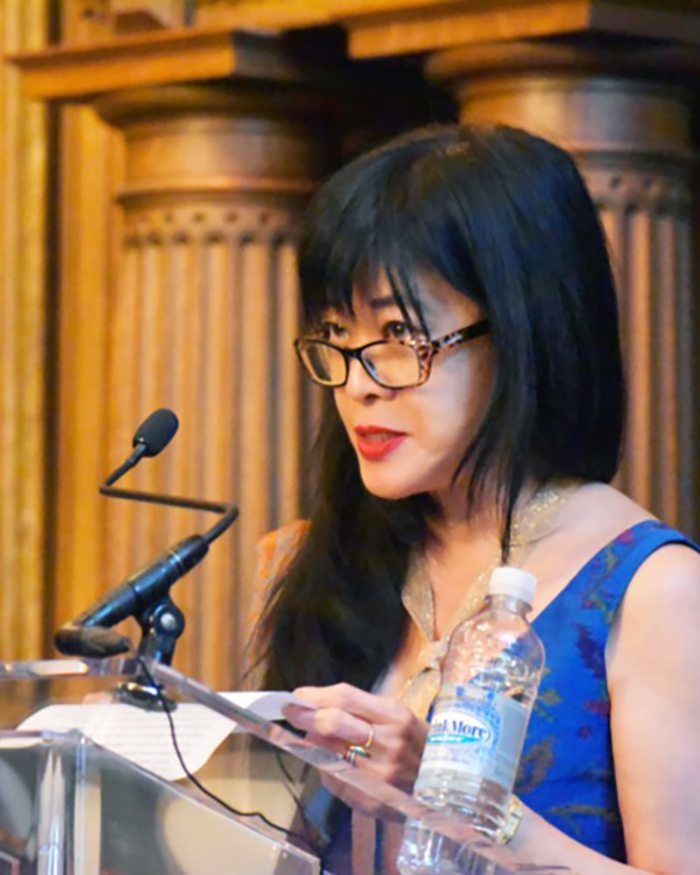
Geraldine Heng
Geraldine Heng studies literary and cultural encounters between Europe, Asia, and Africa during the medieval period, with a focus on the intersections of race, gender, sexuality, class, and religion. At the University of Texas at Austin, she works across multiple disciplines, including Middle Eastern studies, women’s studies, Jewish studies, and human rights. Her research and teaching have helped us understand how medieval worlds were connected through webs of cultural exchange, and how concepts like race were formed and functioned long before the modern era.
Heng’s first book, Empire of Magic: Medieval Romance and the Politics of Cultural Fantasy (2003), offered a profound examination of how traumas and triumphs of the Crusades and Europe’s encounters with the East shaped European romances, particularly the Arthurian legends. The Invention of Race in the European Middle Ages, publishes in 2018, revolutionized the field by arguing that the medieval period was not a preracial era but one in which race was constructed through religion and other social practices. Heng’s compelling analysis of how Jews, Muslims, Africans, Native Americans, Mongols, and Romani were racialized in medieval Europe has earned her multiple awards, including the PROSE Award in world history and the Academy of American Literature Prize in historical studies.
Heng’s scholarship extends beyond her books. She is the coeditor of the Cambridge Elements series in the Global Middle Ages and the RaceB4Race series for the University of Pennsylvania Press. As the founder and director of the Global Middle Ages Project, Heng has created a platform for scholars worldwide to explore links between medieval cultures. Her current research, including the forthcoming Early Globalities: The Interconnected World, 500–1500 CE, continues to challenge the boundaries of medieval studies, exploring the global dynamics of ships, stories, and slaves in the early interconnected world.
Heng envisions working on two projects while at AAR. The first, she said, is part of a Manchester University Press book that offers “a critical reflection and conceptual essay of what it means to undertake historiography when confronted with silences and voids in the archive.” The second is her invited response to a 2025 PMLA special issue with a feature on The Invention of Race in the European Middle Ages, alongside a special cluster of articles.
She spoke more about her plans: “I’d like to visit the revamped Pompeii sites, with all the new discoveries, and the high-speed train that will soon be available from Rome. And, if time permits, I’d also like to spend a few days in Cinque Terre (which has always been on a bucket list, but because I’m meeting deadlines all the time, I don’t get many opportunities like this). Other than that, I look forward to the solitude, conversations, colleagues, and serene grounds of the American Academy in Rome. I’m told you have an excellent chef?”